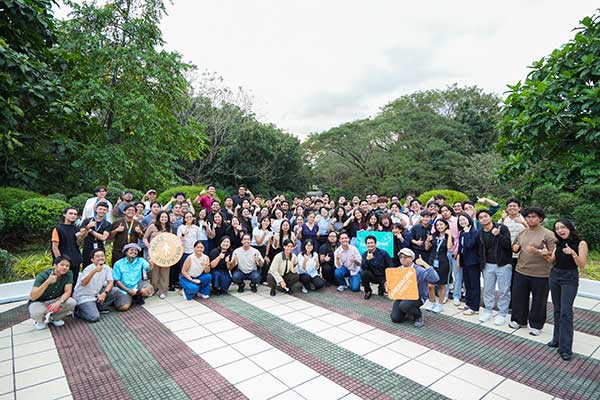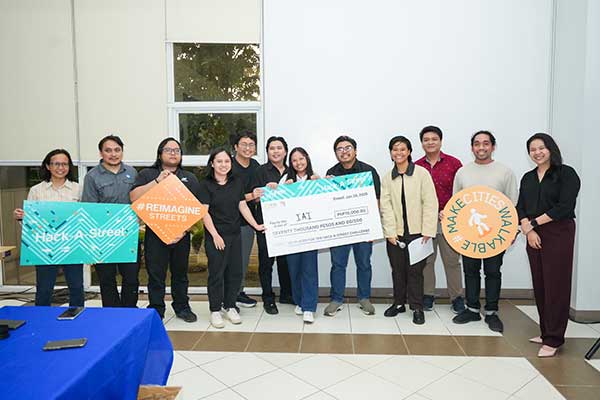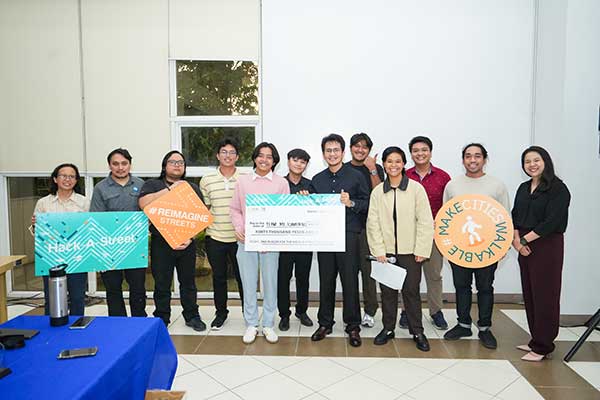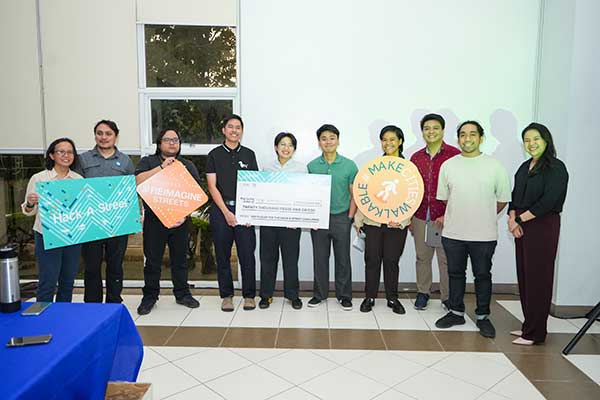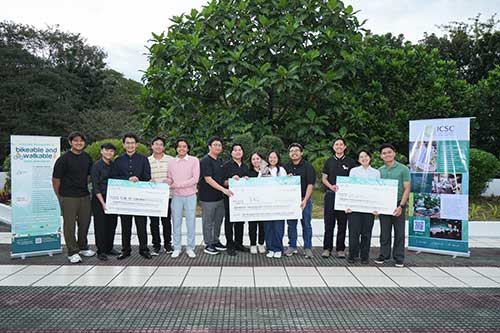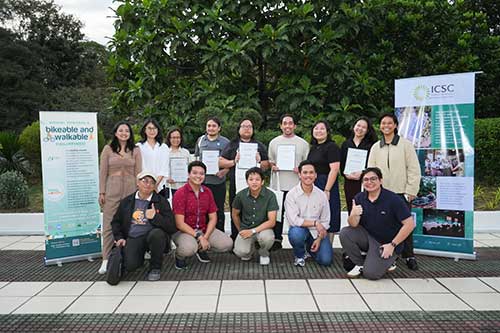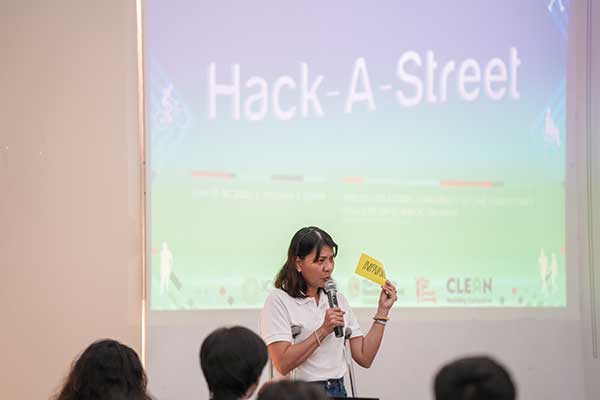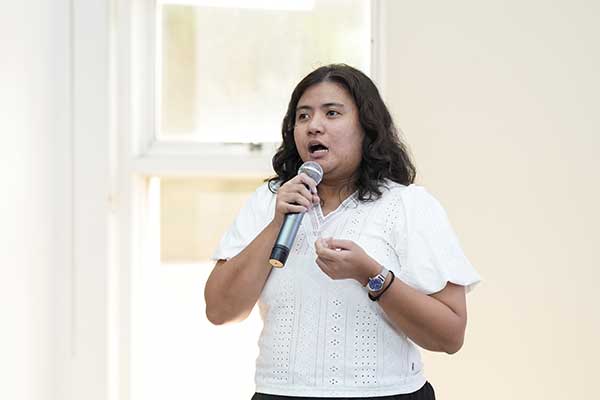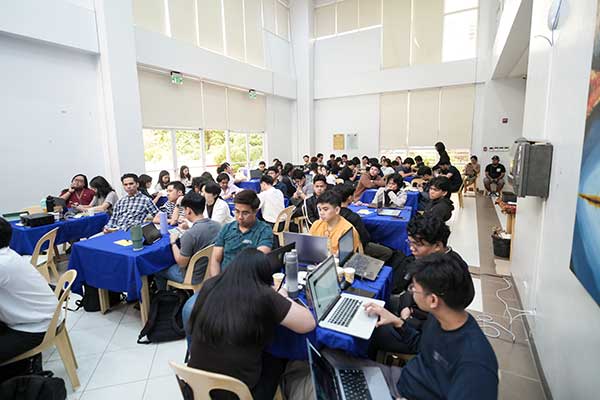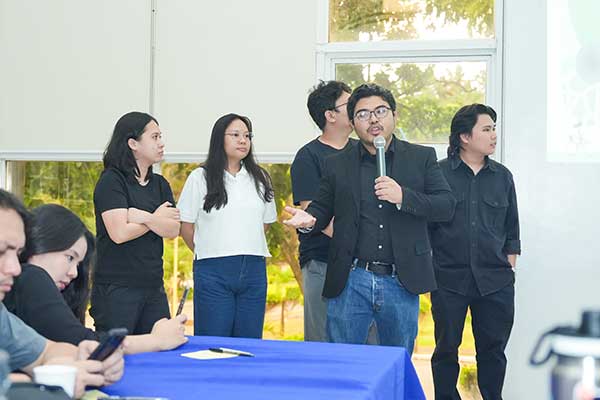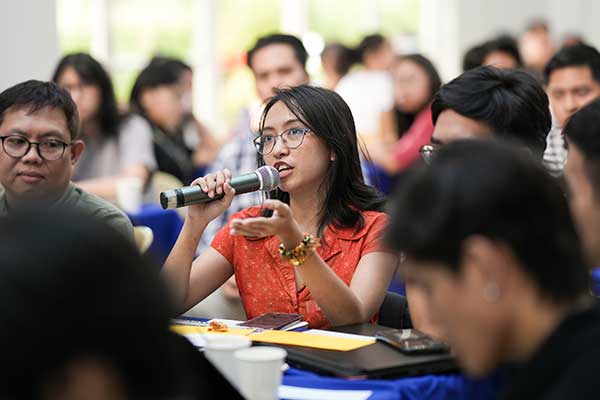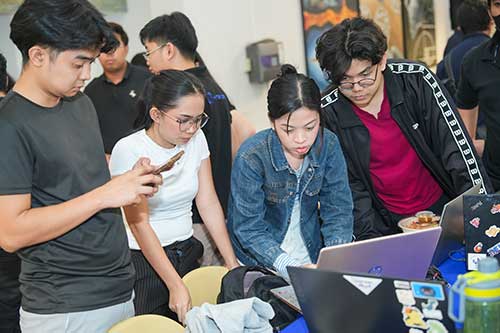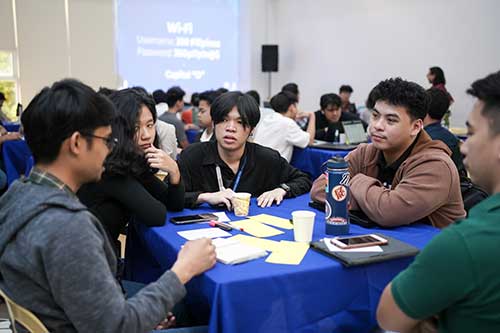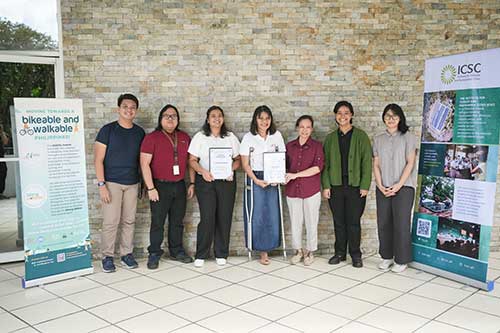QUEZON CITY –– Three teams of young professionals in the fields of computer science, engineering, mathematics, and data science were recognized for designing innovative digital solutions for safer, more inclusive, and walkable streets.
Organized by the Mobility Awards, in partnership with the University of the Philippines Data Science Society last January 17-18, the Hack-A-Street Challenge gathered a total of 63 young professionals to inspire new ideas in addressing the urgent need for better mobility solutions in the face of rising pedestrian safety concerns, worsening traffic congestion, pressure on public transport systems, and alarming contributions of road transport to greenhouse gas emissions and air pollution through digital innovations and applications.
“People deserve transport facilities and sidewalks that are prioritized and not treated as an afterthought. Our mobility solutions must center around the safety and well-being of everyone,” said Arielle Celine Tabinga, Mobility Awards National Coordinator, during the two-day hackathon held in UP Diliman, Quezon City.
Thirteen teams competed for cash prizes worth PHP70,000 for first place, PHP40,000 for second place, and PHP20,000 for third place. Taking on the glaring realities of Filipino commuters who are forced to use the often obstructed, unsafe, or poorly designed sidewalks, these innovations were recognized and awarded cash prizes:
- First place: ai.ke, by Marc Castro, Japhet Pamonag, Nicole Barrion, Alfred Campos, and Camille Rivera of Team IAI
Gabaik is a simple, easy-to-deploy mobile app designed to address bicycle parking challenges in highly urbanized areas. Its key feature is the gravity model, a data-driven approach that analyzes crowdsourced and real-time information from peak hours and foot traffic patterns to pinpoint high-priority zones for bike parking. This model optimizes parking locations based on demand, ensuring bikes are parked where they’re most needed. - Second place: Tulay, by Joseph Tuazon, Ralph Kenneth Rea, Darwin Calub, Peter Rafael Vijar, and John Michael Magpantay of Team Mt. Kamuning
Tulay audits sidewalk conditions and visualizes data on pedestrian accessibility, mobility, and safety concerns. - Third place: Hakbang, by Val Allen Eltagonde, Miguel Antonio Germar, and Annika Marie Yunque of Team Hippothesis
Targeted at local governments, Hakbang is a policy planning tool that aims to simulate the impacts of street design and infrastructure changes on walkability. Evaluating the “walkability score” of streets, the tool analyzes street design elements such as sidewalk width, obstacles, and accessibility features through machine learning. Hakbang aims to guide local government units on how to prioritize projects based on data and be able to quantify how much these projects will cost.
“The hackathon became a vibrant hub of learning and collaboration, wherein participants discovered the undeniable link between mobility, public safety, and accessibility. A standout insight from one of the participants was the importance of empowering communities by involving them in data collection and decision-making—ensuring that solutions are not just innovative but truly rooted in the realities of everyday commuting,” added Tabinga. (Photos courtesy of Mobility Awards)


















